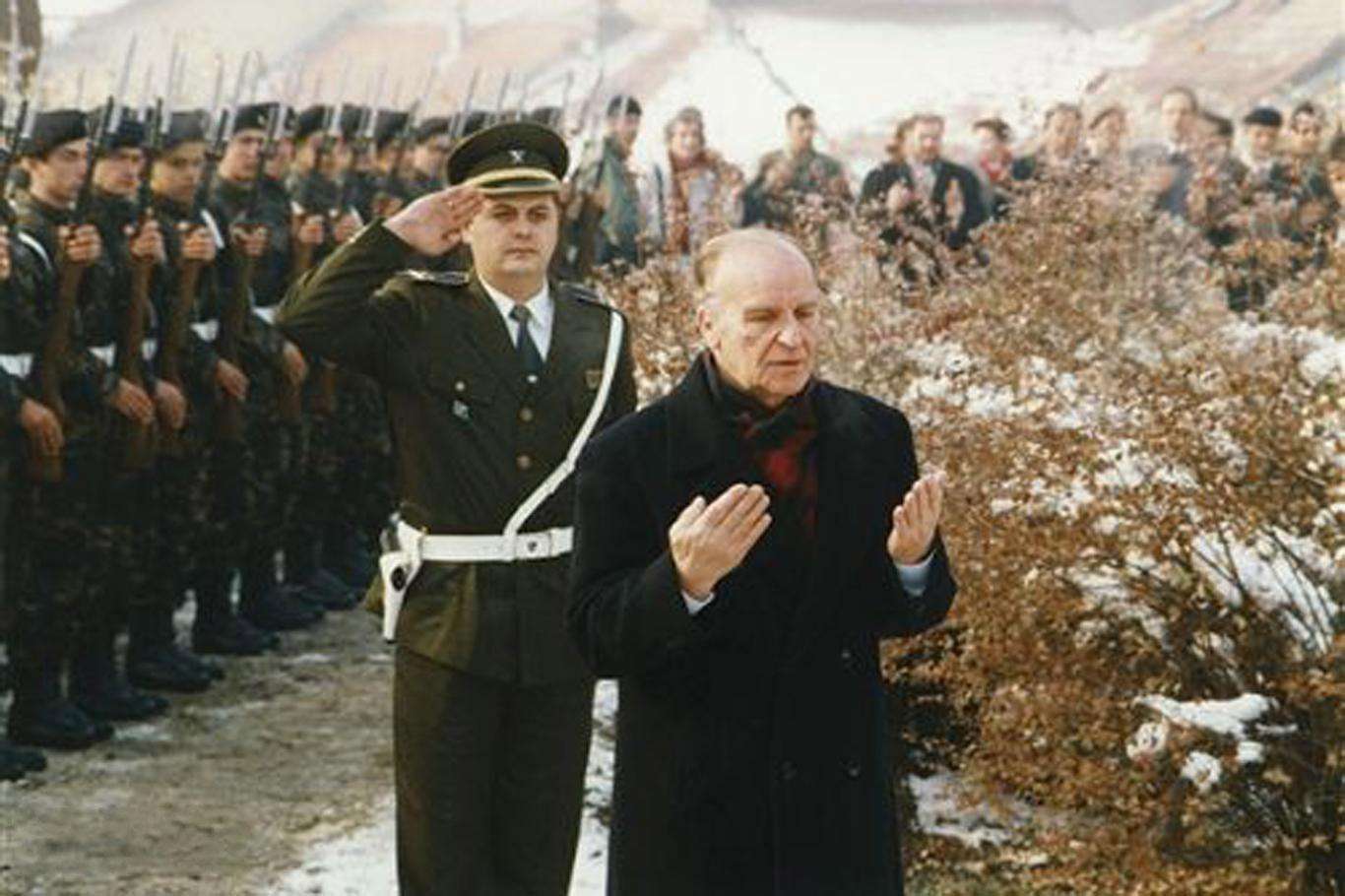Alija İzetbegovic to be commemorated on the 18th anniversary of his death


Today marks the 18th anniversary of the death of Bosnia and Herzegovina's President Alija Izetbegović.
Alija Izetbegović, who is also known as the Wise King, Bosnian statesman, and first president of independent Bosnia-Herzegovina, was born in August 1925 in Bosanski Samac.
The Wise King narrates in his memories that he started Qur’an Course at the age of six, and he performed morning prayers in the mosque even though he was a child.
However, Begovic grew in an environment that they were anti-Islamic and saw Muslims as people who entered Europe from outside.
At the age of 16, he founded the Young Muslim Club
He came forward with his superior talents in high school ages and his interest in Islamic subjects. The Young Muslim Club [Mladi Muslimani] which was founded by him when he was 16-years-old, turned into an activity club though. As a result, it began to lead a number of educational and charity activities. With the help they had in the Second World War, in Bosnia and many other places, they attracted everyone's attention.
During the war, all of Yugoslavia was invaded by Germans. During this war, Serb Chetniks slaughtered 100 thousand Muslims in Bosnia.
Yugoslavia, on January 13, 1946, regained independence. However, in this independence movement, the Communist Party took over the administration in the country after the independence because they played an important role. With the Communist regime taking over the country's government, a systematic war against Islam had begun. The wise King became one of the most important targets of communist oppression, as he was recognized for his Islamic activities and against atheism.
At the age of 24, he was sentenced to 5 years in prison and 14 years in prison for his Islamic activities and services
The Wise King was sentenced to 5 years in prison for his Islamic activities and services at the age of 24. In 1970 he wrote a book entitled “The Islamic Declaration”. He was arrested in 1983, along with 12 Muslim intellectuals over this book. He was then sentenced to 14 years imprisonment due to the activities of the Mlada Muslimani Club which was found in 1950.
In 1989, during the dissolution process of Yugoslavia, he was released. In 1990, he repressed the "The Islamic Declaration”. This book became a symbol of political stability and the fight of Izetbegovic rather than his Islamic identity.
He elected as president in 1990
An independence movement began in Yugoslavia at the beginning of the 1990s. Alija Izetbegović, who was elected president of the joint administration in 1990, was among the key players in the 1992-1995 Bosnian War. The Wise King withdrew from the presidency and the presidency of the party in 2000 due to health problems. Izetbegović was hospitalized after suddenly fainted in his house and broke 4 ribs on September 10, 2003. The 78-year-old Bosniak leader, Wise King, later suffered internal bleeding.
Known for his virtues, lore, struggle, determination, fortitude, resistance, etc. the Wise King, on October 19, 2003, has lost his life in Sarajevo's hospital in Bosnia. (ILKHA)
LEGAL WARNING: All rights of the published news, photos and videos are reserved by İlke Haber Ajansı Basın Yayın San. Trade A.Ş. Under no circumstances can all or part of the news, photos and videos be used without a written contract or subscription.
The European Union is grappling with an unprecedented escalation in drug trafficking, with officials estimating that over 100 tons of cocaine enter the continent each year—a figure that European security agencies admit may represent only a fraction of the true scale.
On November 2, 1917, British Foreign Secretary Arthur James Balfour sent a short letter to Zionist leader Lord Rothschild, pledging Britain’s support for a Jewish homeland in Palestine.
One year has passed since Yahya Sinwar, the legendary leader of Hamas in the Gaza Strip, was martyred in a direct confrontation with Israeli forces in Rafah.
Two years have passed since the morning that forever altered the course of the Palestinian struggle — the dawn of October 7, 2023, when the besieged enclave of Gaza broke through its prison walls in a thunderous uprising now etched into history as Operation Al-Aqsa Flood.